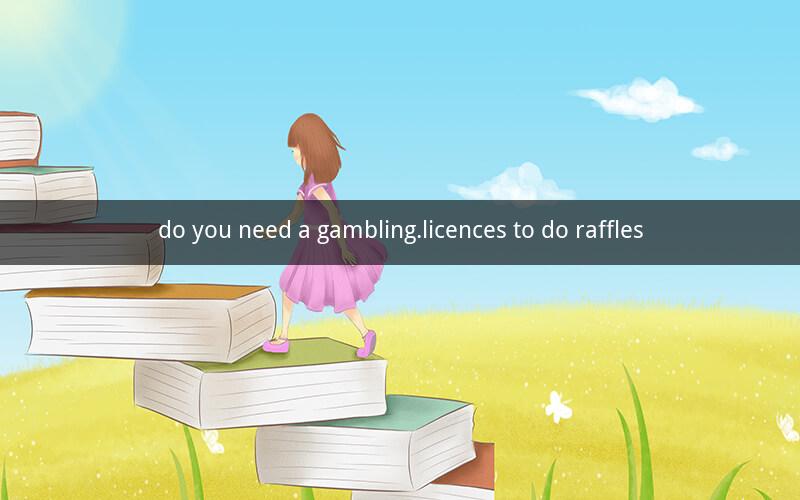
Table of Contents
1. Understanding Raffles
2. Importance of Gambling Licences
3. Types of Gambling Licences
4. Raffle Regulations by Country
5. Legal Implications of Unlicensed Raffles
6. The Process of Obtaining a Gambling Licence
7. Costs and Fees Associated with Gambling Licences
8. The Role of Gambling Commissions
9. Case Studies: Raffles and Gambling Licences
10. Conclusion
1. Understanding Raffles
Raffles are a popular form of fundraising, often used by charities, schools, and community organizations. They involve selling tickets for a chance to win a prize, with the proceeds going towards a specific cause. The concept is simple and has been around for centuries, with variations in different cultures and regions.
2. Importance of Gambling Licences
While raffles are a common fundraising method, they fall under the umbrella of gambling, which is heavily regulated in many countries. Obtaining a gambling licence is crucial for organizations to ensure compliance with local laws and regulations. It not only protects the organization but also the participants and the general public.
3. Types of Gambling Licences
The types of gambling licences vary depending on the country and the specific type of gambling activity. Some common types include:
- Lottery Licence: Used for raffles, lotteries, and similar events.
- Casino Licence: Required for operating a casino or gambling house.
- Bookmaker Licence: Needed for sports betting and other betting activities.
4. Raffle Regulations by Country
Raffle regulations differ significantly across countries. In some places, raffles are only allowed for charitable purposes, while others have more lenient rules. Here’s a brief overview of raffle regulations in a few countries:
- United States: Raffle regulations vary by state. Some states require a lottery licence for all raffles, while others only require licensing for raffles with a high prize value.
- United Kingdom: Raffles are generally permitted for charitable purposes, but organizers must register with the Gambling Commission.
- Australia: Raffles are regulated at the state level. Some states require a gambling licence, while others have specific exemptions for charitable raffles.
5. Legal Implications of Unlicensed Raffles
Organizing an unlicensed raffle can have serious legal consequences. Penalties can include fines, closure of the event, and even imprisonment for the organizers. Moreover, participants may be at risk of fraud or other illegal activities.
6. The Process of Obtaining a Gambling Licence
The process of obtaining a gambling licence varies depending on the country and the specific type of licence. Here are some general steps:
- Research the requirements: Understand the specific regulations and requirements for your country and type of raffle.
- Prepare the application: Gather all necessary documents and information, including details about the organization, the event, and the prizes.
- Submit the application: Follow the application process set by the relevant gambling commission or authority.
- Wait for approval: The approval process can take several weeks or months, depending on the complexity of the application.
7. Costs and Fees Associated with Gambling Licences
The costs and fees for gambling licences vary widely. Some factors that can affect the cost include:
- Type of licence: Different types of licences have different costs.
- Country: Licensing fees vary by country.
- Size of the event: Larger events may require more documentation and incur higher fees.
8. The Role of Gambling Commissions
Gambling commissions play a crucial role in regulating the gambling industry. Their responsibilities include:
- Monitoring compliance: Ensuring that organizations comply with gambling laws and regulations.
- Investigating violations: Taking action against organizations that violate gambling laws.
- Promoting responsible gambling: Educating the public about the risks and consequences of gambling.
9. Case Studies: Raffles and Gambling Licences
Here are a few examples of organizations that successfully obtained gambling licences for their raffles:
- Red Cross: The American Red Cross obtained a lottery licence to conduct a large-scale raffle for a disaster relief fund.
- Schools: Many schools have obtained lottery licences for fundraising events, such as sports nights or dances.
- Charities: Various charities have organized licensed raffles to raise funds for specific causes.
10. Conclusion
Obtaining a gambling licence is an essential step for organizations that wish to conduct raffles and other fundraising events. By ensuring compliance with local laws and regulations, organizations can protect themselves, their participants, and the general public. It’s important to research the specific requirements and regulations in your country to ensure a smooth and successful fundraising event.
Questions and Answers
1. What is the main purpose of obtaining a gambling licence for a raffle?
- To ensure compliance with local laws and regulations, protect the organization and participants, and promote responsible gambling.
2. Are all raffles considered gambling?
- Yes, raffles fall under the category of gambling and are subject to regulation in many countries.
3. How can an organization obtain a gambling licence for a raffle?
- Research the specific requirements, gather necessary documents, submit an application, and wait for approval.
4. What are the potential legal consequences of organizing an unlicensed raffle?
- Penalties can include fines, closure of the event, and even imprisonment for the organizers.
5. Are there any exemptions for small raffles?
- Some countries have specific exemptions for small raffles, but these vary by jurisdiction.
6. How long does it take to obtain a gambling licence?
- The approval process can take several weeks or months, depending on the complexity of the application.
7. What are the costs associated with obtaining a gambling licence?
- Costs vary widely, depending on the country, type of licence, and size of the event.
8. What is the role of the Gambling Commission?
- The Gambling Commission monitors compliance, investigates violations, and promotes responsible gambling.
9. Can an organization conduct a raffle without a gambling licence?
- Yes, but it is illegal and can result in serious legal consequences.
10. How can an organization ensure compliance with raffle regulations?
- Research local laws and regulations, obtain a gambling licence if required, and follow best practices for organizing a raffle.